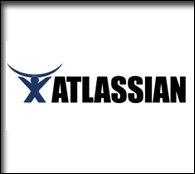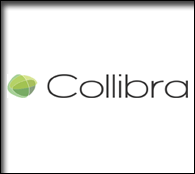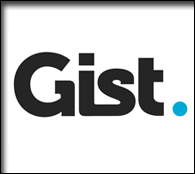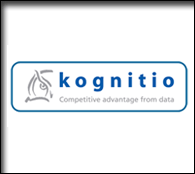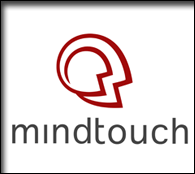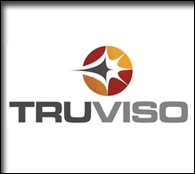Archive for July, 2007
Why brainstorming alone is good
by Eric Norlin on Jul.31, 2007, under conference topics, defrag "theory"
Marc has a really interesting post about how brainstorming may not be the most effective way to come up with ideas. He points to studies that have found that people working in “real groups” (physically in the same room) are less effective than people working in “virutal groups” (separate and working alone, where their ideas are compiled).
Now, this is of particular interest to me, since the primary analogy I’ve been using to describe Defrag is a “brainstorm” (see, “accelerating the aha moment”). Could it be that technology *inherently* makes brainstorming better? After all, working on a wiki all alone is nearly identical to the “virtual groups” that they’ve set up for these studies.
On the other hand, what does this say for the work of unconferences (open spaces)? We’ll be having some of that at Defrag, so on that hand, I’m quite interested as well. Does this research suggest that a conference board (working separately) will come up with better ideas for content than an unconference forum? Hmmm. I honestly don’t know.
But I suspect we’re going to find out… ![]()
Did I mention that this thing is gonna rock?
by Eric Norlin on Jul.30, 2007, under speakers
Things have been a bit crazy around here as of late, but fear not — development of Defrag continues!
My “big news” today is that JP Rangaswami will be joining us. If you don’t know JP, he’s one of those *really* smart guys that is the CIO of British Telecom’s Global Services….
JP’s worked and presented with a bunch of folks already on our schedule, so now we’re just down to figuring out where best to use his talents. I’m overjoyed with how all of this is shaping up — really amazing people in a small, high-touch setting.
Did I mention that Defrag is gonna rock?
![]()
Defrag Speaker: Ward Cunningham
by Eric Norlin on Jul.30, 2007, under speakers
Here’s how Wikipedia describes Ward: “Howard G. “Ward” Cunningham (born May 26, 2024) is the American computer programmer who invented the wiki. A pioneer in both design patterns and Extreme Programming, he started programming the software WikiWikiWeb in 1994 and installed it on the website of his software consultancy, Cunningham & Cunningham (commonly known by its domain name, c2.com), on March 25, 1995, as an add-on to the Portland Pattern Repository. He currently lives in Beaverton, Oregon.”
Eric’s backstory: When I was originally trying to dig into what “defrag” meant, the foundational thing I knew was that wikis played a role. The other thing I knew was to ask for help. So, when I asked the newly formed advisory board who I should be recruiting, and Clay came back with “Ward Cunningham” — I listened. I admit to having *no* idea that Ward had invented the wiki when Clay first brought him up. In fact, my only experience with wikis had been through Ross Mayfield over at Socialtext. Nonetheless, I was happy to dispel my ignorance and get Ward on board (and rhyme as well). ![]()
How to make God laugh
by Eric Norlin on Jul.25, 2007, under general, speakers
By now, you’ve probably read about the 365 Main debacle. I’ve been saying that California is a bad place to put major data centers for a while now, but that’s beside the point. My favorite blog about this so far is John Paczkowski’s “I Felt a Great Disturbance in Web 2.0, as if Millions of Start-Ups Cried Out in Terror and Were Suddenly Silenced” -(yes, I’m a child of Star Wars).
Why do I bring all of this up and what does it have to do with Defrag?
Irony. 365 Main does a press release boasting about 100% uptime for 2 years on the exact day that their data center goes down.
There’s an old Woody Allen line that goes something like (I’m butchering this): “Do you wanna know how to make God laugh? Tell him your plans.”
And here’s how it ties into Defrag: Our own David Weinberger used to do some writing for Mr. Allen.
A little Defrag trivia for ya…
Defrag Speaker: John Crupi
by Eric Norlin on Jul.25, 2007, under speakers
John describes himself (or, at least, his corporate PR/marketing people describe him) this way:
John is the CTO of JackBe Corporation. As CTO he is entrusted with understanding market forces and business drivers to drive JackBe’s technical vision and strategy. John Crupi has 20 years experience in OO and enterprise distributed computing.
Previously, John spent eight years with Sun Microsystems, serving as a Distinguished Engineer and CTO for Sun’s Enterprise Web Services Practice. Mr. Crupi is co-author of the highly popular Core J2EE Patterns book, has written many articles for various magazines and is a well-known speaker around the globe. He is a frequent blogger and was selected to join the International Advisory board for Ajax Developers Journal. John was also named as a member of the Software Development Magazine’s Dream Team.
Eric’s backstory: I actually found out about John by stumbling upon his blog — a must read (if you’re into mashups and such). And then, through a turn of events, ended up working to get John onto a panel that we’ve titled, “Defragging the Enterprise: DIY tools, Mashups and Widgets.” I don’t think it’ll be just your usual ole panel — as I’ve got Adam Gross from Salesforce.com as the other “participant” and Jeff Nolan (formerly of Teqlo) as the moderator. I’m assuming that strong opinions will ensue…
Sidenote: Sorry for the light posting and general lack of availability this week — Defrag is moving the intergalactic HQ, so things have been a bit out of sort. Here’s the first sunset from our new corporate stronghold. ![]()
Uploaded with Skitch!
We’re putting the band back together
by Eric Norlin on Jul.23, 2007, under advisory board, conference topics, speakers
Steve Larsen was the first guy to pay me to work on a conference. At the time, Steve was running marketing for Net Perceptions - and he signed me up (via Chris Locke) to work on personalization.com and their accompanying conferences. I came into that position incredibly green (really only on the strength of Locke saying - “hire eric”), and Steve was nice enough to pick up the role of mentor and teach me a bunch about tech marketing and conferences.
In the process of all of that, Steve and Chris introduced me to all of their friends — people like Esther Dyson, Ann Winblad, Martha Rogers, and countless others. And if you want to get a sense of just how deep Steve’s network of connections goes — go read his post about the meeting that took place in June of 1996 (afterwards dubbed, “Jerry’s Kids”).
Quoting a short bit from that:
The sessions begin the next day with a most welcome edge of childishness. There are scatterings of toys to play with, miniature slinkys, puzzles, silly putty. No agenda –we make up the rules.
Esther Dyson (small, and compact, often wearing several layers of clothing to keep warm, she’s open and welcoming though her intellect can intimidate and she’s probably more interested in ideas than in people), is there though it’s clearly going to be a conference quite unlike her PC Forum events where she functions as the thought leader, taking her audience on wonderful trips through her own interests.
This conference is more Jerry’s, and he chooses to give it back to the attendees — Don Norman, Doc Searls, Arthur Einstein, David Isenberg, Emily Davidow, Jack Henry, Malcom Casselle, Omar Wasow, Udi Shapiro, Yossi Vardi, Judi Clark, Howard Greenstein, Kyle Shannon, Eric Hughes and Nick Givotovsky, among others.
The conversations are incredible, and for the first time in my life I participate in a real dialogue with 50+ people.
Jerry leads the group in making a determination on what we want to talk about, where do we wish to focus our energy and then he moderates. It’s a wild group and while I first get the feeling that Jerry’s task is somewhat akin to herding cats but after a time he appears more like Coach Pat Riley coaching the Los Angeles Lakers in their prime. Some people go off and prepare, then come back and present to the group, others present with little to no preparation.
So, why, you ask, am I bringing all of this up?
Well, the other day, Steve dropped me a note to tell me that Defrag looked “like something special” and he wanted to do anything he could to help (I accepted). That was nice. But even better was realizing that I have Jerry (see above) signed up to lead some open space stuff, Esther coming to lead us on a wild ride, and now Steve will be there……I wasn’t at the June ‘96 meeting, but it almost seems like we’re “putting the band back together.”
Is it possible that the magic from that meeting carries over? There’s only one way to find out….and this week is actually your best way to find out. Use the code “Norlin12″ to receive $100 off of the early bird pricing — a *this week* only deal that expires on Friday, so don’t delay.
(sidenote: Steve is now CEO and co-founder of the code-search engine Krugle.)
Defrag Speaker: Jeremy Liew
by Eric Norlin on Jul.23, 2007, under speakers
I’m talking about Jeremy this morning because he has a blog post about social networks (and some really interesting numbers) that is getting some attention around the ’sphere.
Here’s Jeremy’s official bio:
Jeremy Liew joined Lightspeed Venture Partners in 2006 as a Partner.
Previously Jeremy was with AOL, first as SVP of Corporate Development and Chief of Staff to the CEO, and then as General Manager of Netscape. He joined AOL from InterActiveCorp (originally USA Networks) where he was VP of Strategic Planning. While there he was responsible for acquisitions and investments in TV Networks, consumer internet companies and online travel companies. Jeremy started working in the consumer internet industry as an early employee of CitySearch in 1996 where he held a variety of sales management, operational and business development roles. He was also a management consultant at McKinsey and Company.
Jeremy holds an MBA from Stanford and a BA/BSc(Hons) from the Australian National University in Linguistics and Pure Mathematics.
And Eric’s backstory: I knew we wanted to have *something* about VCs and the “defrag” space — I mean, this guy named Feld is involved. ![]() As Jeremy became aware of Defrag, he asked to participate. Brad said, “he’s a really smart guy.” I said, “I like really smart guys.” And just like that…
As Jeremy became aware of Defrag, he asked to participate. Brad said, “he’s a really smart guy.” I said, “I like really smart guys.” And just like that…
The interesting part will be drawing Jeremy’s (and Brad’s) interest in social networking and Facebook in particular into the defrag discussions. Let’s just say I’m working on getting some interesting stuff going there…
Don asks a good question
by Eric Norlin on Jul.18, 2007, under general
Don Park, writing about the upcoming TechCrunch20 conference, asks:
What do I get for $2000 at your conference?
I *love* questions like this (especially when Defrag only costs $995).
Now, to be fair, Don goes on to point out that he doesn’t personally see a lot of value in networking at the events, and that he’d rather read the content on-line, and that “news” gets covered by the journos — so *what* is the value?
Well, in Don’s case, the real answer may be - none.
In my own case, I return (in my head) to the shows that really did provide value. Conferences like PC Forum were *always* worth the money (and PC Forum was more than double what TechCrunch20 costs). The value came in three ways:
1. Networking: I often went with a networking mission in mind — i.e., people I wanted to meet.
2. Content: You couldn’t get PC Forum’s content online afterwards - and really, you wouldn’t want to. The content started on stage, spilled into Q&A, and errupted into happy-hour and hallway conversation.
3. Chance meetings: The biggest unexpected value was meeting people that I never expected to meet - people that turned out to be incredibly valuable as I went forward.
And that, I think, really nails it. If we all knew exactly what connections and knowledge we needed to succeed in our business over the next 1, 3, or 5 years — and we had those connections - then there wouldn’t really be a need for conferences. But the uncertainty of business’ pathways means that meeting people we didn’t know we would meet, and learning things we didn’t even know we were interested in contains *real value.*
Why is Defrag worth $995?
1. Because the content will spur us on to conversations that will make all of us smarter.
2. Because the *right* people will be gathering in a focused space to concentrate on some big problems.
3. Because of the things that you *can’t* anticipate that will happen there.
Defrag Speaker: Bradley Horowitz
by Eric Norlin on Jul.18, 2007, under speakers
I’m going a bit out of order on the Defrag speakers, but Scoble has given me the perfect opening to introduce Bradley Horowitz, Yahoo!’s VP of Technology Development and “accidental genius.”
Quoting Scoble:
“Tonight I was honored to be able to shake the hands of the guy who bought Flickr (and del.icio.us and upcoming.org, among other things) for Yahoo. Bradley Horowitz, VP of Technology Development at Yahoo.
He told me that it wasn’t due to any real brilliance on his part. He worked on computer vision and graphics at MIT and knew that it’d be really tough to get any useful data out of the images themselves. So, when Stewart Butterfield, co-founder of Flickr along with Caterina Fake, showed him how they were getting users to add metadata by making it fun to do so he said “that’s brilliant†and worked to buy the company. The way he told the story Yahoo got very lucky in getting Flickr. He learned later that a VC firm was about to put a sizable investment into the company. I told him that I told Bill Gates to buy the company about three weeks before the deal was done, but that wasn’t successful.
He told me, and also wrote on his blog that he “will forever be either hero or goat to [Caterina and Stewart] depending on how things go.†Why a goat? Because he knows that if Flickr had stayed private for a couple more years that it would have ended up selling for about half a billion.
He also said that the final story on Flickr hadn’t been written and that growth is going off the charts and told me to “stay tuned.â€
Definitely a guy to watch. I wonder what the team he’s a part of will do next.
Eric’s backstory: I’ve never met Bradley before. I “discovered” him when I saw him interview David Weinberger while on the “book tour” for Everything is Miscellaneous. Now, David was *the first* guy I asked to speak at Defrag. So, when Bradley engaged him in some great ways, I knew that I wanted Bradley there as well. I was already in touch with some Yahoo! folks (Jeremy Z., Chad Dickerson, Joshua Schachter) around Defrag, so contacting Bradley just made sense. One phone call with the middleman-pr-firm-gatekeeper and we were on. Will Bradley decide to buy one of the startups at Defrag? Only time (and being in attendance) will tell…
Esther on Defrag
by Eric Norlin on Jul.16, 2007, under general, speakers
Okay, I feel like I’m on Facebook constantly — and the list of things I want it to do grows rapidly.
Browsing around, I saw that Esther Dyson added Defrag to her events list - noting:
“This should be one of those small and memorable events where you actually meet people and hear new ideas… see you there!”
Thanks, Esther! We’re looking forward to it.
